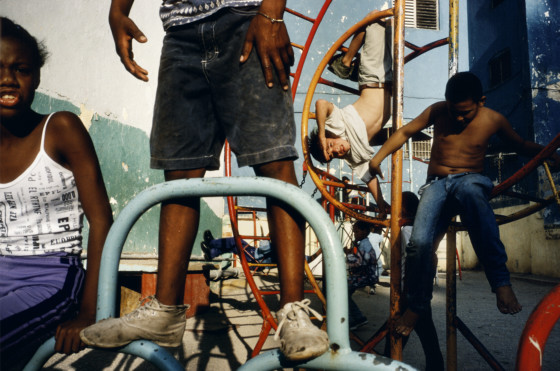Alex Webb is best known for his complex and vibrant color photographs of serendipitous or enigmatic moments, often in places with socio-political tensions. Over the past 45 years, Webb has worked in places as varied as the U.S.-Mexico border, Haiti, Istanbul, and, most recently, a number of U.S. cities. “My work is questioning and exploratory,” he says. “I believe in photographs that convey a certain level of ambiguity, that ask questions rather than provide answers.”
I was drawn to Webb’s photography due to his editing style with high saturation images to emphasize certain freedoms and limitations. Although my work holds no political agenda and most of Webb’s does, I have used a similar editing technique of bright, strong colours in order to convey similar meaning.
Webb worked in Latin America and the Caribbean in his 20’s. This is where he transitions from B&W to colour photos and credits these two cultures for amplifying his love and interest of colour. He has produced 16 books during his career many of which were made with his wife who is also a photographer.
“I only know how to approach a place by walking. For what does a street photographer do but walk and watch and wait and talk, and then watch and wait some more, trying to remain confident that the unexpected, the unknown, or the secret heart of the known awaits just around the corner”
Alex Webb

Technical – Webb’s photos always consist of natural lighting or at least appear that way. He uses bright and saturated natural light to give his photos an upbeat feeling and also develops a large tonal range with his imagery.
Visual – The standout visual techniques in Webb’s work are his colour, framing and tones. He uses high saturation to give a physical representation of freedom through ‘happy’ colours. the mix of an orange/pink sky and large green wall in this photo draws the viewers attention immediately. The framing of the photo and positioning of the five people within the space adds to the ambiguity of the image and asks questions of what they are looking at, why they are stood there and who they are?
Conceptual – “we all are conditioned by our culture, our education, our experiences — what makes us who we are. Nonetheless, I make an effort to be as open as possible to alternative possibilities, possibilities that may contradict what I rationally might expect.” Webb attempts to show other cultures to his own without being biased to educate and inform the public


